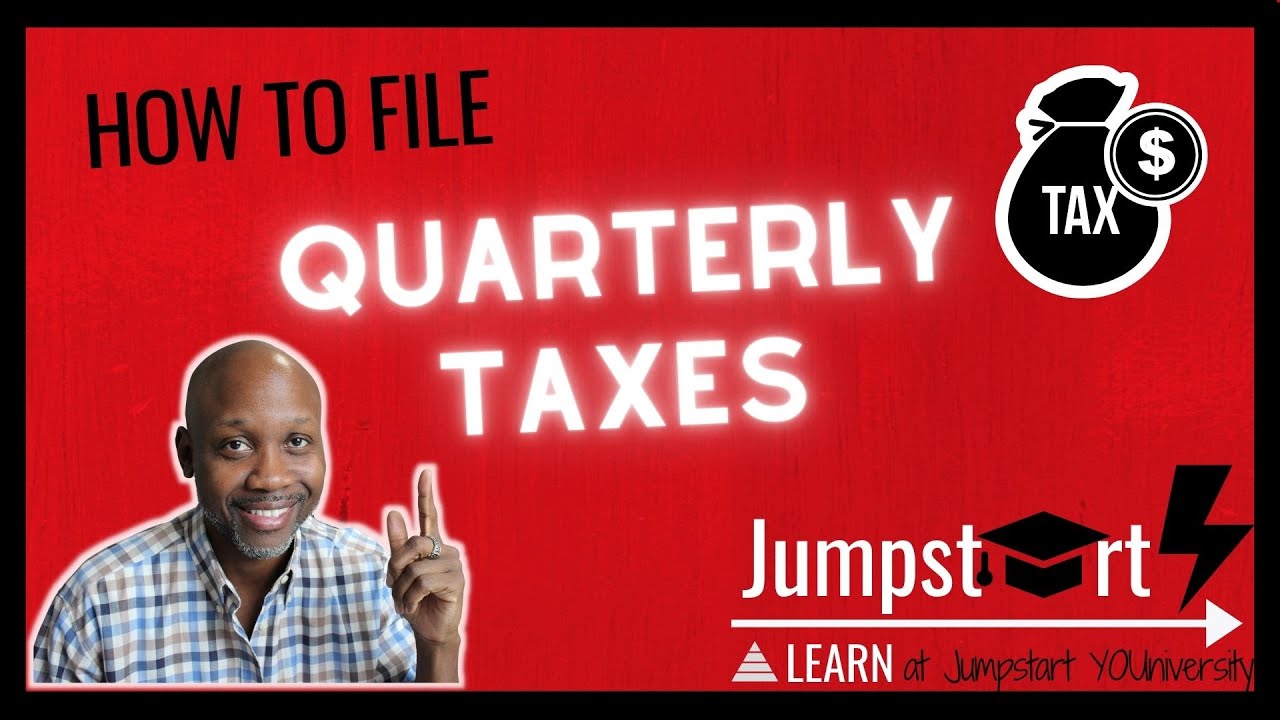Key Points
- Freelancers and business owners should file taxes quarterly to avoid penalties.
- Quarterly organization of financial documents simplifies the tax filing process.
- Accurate tracking of all income and expenses ensures accurate tax calculations.
- Accounting software can simplify record-keeping and calculations.
- Missing deadlines can lead to significant penalties and interest charges.
Why Quarterly Tax Filing is Important
Filing taxes quarterly may seem like a daunting task, but it’s crucial for many business owners and freelancers. Why? Because the IRS wants to ensure that you’re paying taxes as you earn income. This system allows you to spread your tax payments throughout the year, rather than being hit with a large bill at the end.

Filing your taxes quarterly isn’t just about keeping the IRS off your back. It’s also a savvy way to manage your cash flow. By estimating and paying taxes throughout the year, you can avoid the shock of a huge payment in April. This approach helps you budget more effectively and keep your finances under control.
Who Should File Quarterly Taxes
Not everyone is required to file quarterly taxes. If you anticipate that you will owe at least $1,000 in taxes after subtracting your withholding and refundable credits, the IRS mandates that you make estimated tax payments. This applies to sole proprietors, partners, and S corporation shareholders. If you are an employee and your taxes are deducted from your paycheck, you may not need to worry about this.
Those who work as freelancers, gig workers, or small business owners are often the ones who need to file quarterly taxes. If you have income that isn’t subject to withholding, such as interest, dividends, or rental income, you may want to think about making quarterly payments. For those looking to maximize their returns, exploring business tax refund strategies can be beneficial.
Why You Should File on Time
There are several advantages to filing your quarterly taxes on time. For one, you avoid the penalties that come with late payments. The IRS charges interest on any payments made after the deadline, and these charges can accumulate rapidly. By making your payments on time, you ultimately save money.
Additionally, filing on time assists you in managing your business more effectively. It compels you to frequently examine your finances, allowing you to identify trends and make changes before they become issues. This practice keeps you up to date on your financial health and supports improved decision-making.

What Happens If You Miss a Deadline?
If you miss a quarterly tax deadline, it can get expensive. The IRS charges penalties and interest on late payments, and these can add up over time. The penalty is typically calculated based on how much you owe and how late the payment is. So, make sure you note the due dates on your calendar: April 15, June 15, September 15, and January 15 of the next year.
Not only can missing deadlines lead to financial penalties, but it can also cause stress and confusion. By staying organized and planning ahead, you can avoid these unnecessary headaches and focus on growing your business instead.
Getting Your Financial Paperwork in Order
Being organized is crucial when it comes to filing your taxes every quarter. Keeping your financial paperwork in order will not only make tax time a breeze, but it can also help your business run more smoothly. Let’s take a look at how you can keep everything in order.
Keeping Records of Earnings and Spending
The cornerstone of a hassle-free tax filing process is keeping a record of your earnings and spending. Make it a rule to log every transaction as it happens. This habit guarantees you don’t overlook any deductions or income that could alter your tax liability.
It’s a good idea to have a separate bank account for your business dealings. This will help you keep track of your income and expenses and will also provide the IRS with a clear paper trail if they ever need it. You should regularly check your bank statements to make sure they match up with your records.
Keeping Track of Your Finances
It’s important to keep accurate financial records for quarterly tax filing. Hold onto your receipts, invoices, and other documents that prove your income and expenses. If the IRS ever audits your tax return, these records will be critical.
Keep your documents safe, whether that’s in a physical location or online. Using digital storage options like cloud-based systems can help you keep everything organized and allow you to access your files from anywhere.
Maximizing the Benefits of Accounting Software
Accounting software can be a godsend for managing your financial paperwork. Tools like QuickBooks, FreshBooks, or Xero can take over a lot of your accounting tasks, simplifying the process of monitoring income and expenditures.
Configure your accounting software to automatically categorize transactions. This will save you time and decrease the likelihood of mistakes. Make sure you reconcile your accounts regularly to ensure that everything is correct and current. By using technology, you can make the tax filing process easier and concentrate more on your business. For additional strategies, consider exploring tax planning and legal considerations for businesses.
Adapting to the Changing Business Landscape
Being a business owner requires flexibility. Your income and expenses are bound to vary, and your estimated tax payments should mirror these fluctuations. Make sure to frequently check your financial statements to see if your business’s actual performance matches your original estimates.
Should you experience a rise in your income, it’s necessary to boost your quarterly payments in order to evade penalties. Conversely, if your income drops, you could be overpaying. Make sure to adjust your estimates as needed to guarantee that you’re paying the correct amount each quarter. For more insights, consider exploring strategies to maximize business tax refunds.
Paying Your Taxes Correctly
Paying your quarterly taxes correctly and on schedule is critical. The IRS offers a variety of payment options, making it easy and convenient for taxpayers. Let’s take a look at how to correctly pay your taxes.
How to Pay Your Federal Taxes Online
The IRS has several online payment options that simplify the process of paying your estimated taxes. One option is the IRS Direct Pay service, which lets you pay directly from your bank account at no cost. This service is safe to use and gives you immediate confirmation of your payment.
Another option is to use the Electronic Federal Tax Payment System (EFTPS). This service does require you to register, but it gives you more control and flexibility with your payments. You can even schedule payments in advance, which helps make sure you never miss a deadline.
State Tax Factors
In addition to federal taxes, your state may require you to pay estimated taxes. Each state has its own rules and systems for estimated tax payments, so it’s important to understand what your state requires.
Like the federal government, most states also provide online payment facilities. Look up your state’s tax website to find detailed guidelines on how to pay your estimated taxes. Making both federal and state payments on time helps you maintain compliance and steer clear of needless penalties.
For instance, California allows you to use their online payment system to make your estimated tax payments. You can pay using your bank account or credit card, which gives you options in managing your cash flow. For more insights on optimizing your tax strategy, check out these tax optimization strategies.
Furthermore, it’s always a good idea to hold onto any records of your payments, such as confirmation numbers and dates. This paperwork could be a lifesaver if you ever need to show that a payment was made promptly.
Making Sure You Pay on Time
It’s crucial that you meet your quarterly tax deadlines. If you don’t, you could be hit with penalties and interest charges, which can add up. To make sure you don’t forget, mark the payment deadlines on your calendar and set reminders.
Think about setting up automatic payments if you can. A lot of online payment platforms let you plan payments ahead of time, so they’re always on time. This kind of automation can be a godsend if you’re busy and don’t want to be rushing at the last minute.
Dealing with Filing Errors
No matter how well you prepare, errors can still occur. If you find a mistake in your quarterly tax filing, there’s no need to worry. The IRS has methods to fix these errors, and acting quickly can help avoid any possible problems.
First off, you need to figure out what went wrong. Did you miscalculate, forget to make a payment, or provide wrong information? Knowing what the problem is will help you fix it.
Let’s say you find out that you didn’t pay enough in estimated taxes for the second quarter. If you catch this error early enough, you can increase your third-quarter payment to make up for the shortage. This will help you avoid any penalties.
How to Fix Errors
After you’ve found the error, make sure to fix it. If you didn’t pay enough, send the rest of the payment as quickly as you can. Use the same payment method you used the first time, and make sure to mention that it’s an extra payment for that particular quarter.
Did you pay too much? You may have the option to apply the overage to your next quarterly payment. Reach out to the IRS for advice on what to do next. The process can change depending on the circumstances.
Getting in Touch with the Taxman
Don’t be afraid to contact the IRS or your state tax agency if you’re not sure how to fix a mistake. They can give you advice and help you understand what you can do. If you’re upfront and take the initiative, you can stop small problems from getting worse.
Using Mistakes as a Learning Tool to Prevent Future Problems
Every mistake is a learning opportunity. Reflect on what caused the error and what you can do differently next time to avoid the same problem. You might need to tweak your processes or use certain tools to minimize the chance of making errors.
- Double check your math before you send in your payments.
- Create a checklist to make sure you don’t miss any steps.
- Think about hiring a tax professional for extra help.
If you learn from your past mistakes, you can get better at filing your taxes and feel more confident about handling your business’s money. For more detailed guidance, consider reading about how to pay quarterly taxes.
Keep in mind, the secret to effective quarterly tax filing is readiness and order. By maintaining control of your finances and taking initiative, you can prevent fines and keep your business operating without a hitch.
Wrapping Up and What’s Next
Don’t let the idea of filing quarterly taxes intimidate you. This guide can help you navigate the process, freeing up your time and energy to concentrate on expanding your business. Let’s review the main takeaways and look ahead.
Evaluating Your Filing Procedure
Set aside some time to evaluate your current filing procedure. Recognize the areas that were successful and those that require enhancement. This introspection aids you in fine-tuning your strategy and making the next quarter more streamlined. For more insights, consider exploring strategies to maximize business tax refunds.
Preparing for Next Year’s Tax Filings
As we conclude this year’s tax filings, it’s essential to prepare for the next. Begin by assessing what was successful and what was not. Did you have all of your paperwork prepared? Were there any unexpected results in your tax calculations? Use these observations to make next year’s process more efficient.
Think about scheduling financial reviews every quarter. This habit makes sure you keep up with any income or expense changes. It also lets you change your estimated payments to keep them correct and avoid penalties.
Don’t Hesitate to Get Professional Assistance
If you’re finding it all too much, don’t forget that there’s help out there. Tax professionals can offer you invaluable advice and make sure you’re ticking all the boxes. They can also help spot any deductions you might have overlooked, which could save you some cash. For more insights, consider these strategies to maximize business tax refunds.
Above all, a tax professional can provide you with peace of mind. With their knowledge, you can concentrate on managing your business, knowing that your taxes are being handled properly. If you have any questions or need help, don’t hesitate to contact them.
Commonly Asked Questions
Here are some frequently asked questions about quarterly taxes to help clear up any lingering doubts.
This Frequently Asked Questions section contains all the important details you need to go through the process confidently.
What do we mean by quarterly taxes?
When we talk about quarterly taxes, we’re referring to estimated tax payments that individuals and businesses make four times a year if they anticipate owing at least $1,000 in taxes. If you receive income that isn’t subject to withholding, such as self-employment or rental income, you’re required to make these payments.
The IRS uses quarterly payments to collect taxes as they’re earned, which helps to reduce the risk of underpayment and penalties.
How can I tell if I should file quarterly taxes?
If you think you’ll owe $1,000 or more in taxes after subtracting your withholding and refundable credits, you probably need to make estimated tax payments. This requirement often applies to self-employed people, freelancers, and business owners.
Take a look at your tax return from last year to figure out how much you might owe this year. If your income has changed a lot, you’ll need to adjust your estimate.
What if I can’t meet the deadline for my quarterly taxes?
If you can’t meet the deadline for your quarterly taxes, the IRS may impose penalties and interest on the amount you owe. It’s crucial to pay as quickly as possible to avoid or reduce these charges. For strategies to potentially maximize business tax refunds, consider consulting with a tax professional.
If you’re having trouble, think about getting in touch with the IRS to talk about payment options. They might offer installment agreements or other solutions to help you handle your tax liability.
- If you’re unable to pay the full amount, try to make partial payments.
- Reach out to the IRS to discuss setting up a payment plan.
- Stay on top of any penalties or interest that accumulate.
By addressing the problem head on, you can avoid any additional issues in the future.
What can I do to lower my quarterly tax payments?
If you’re looking to lower your quarterly tax payments, you should try to take full advantage of deductions and credits. Take a look at your expenses and see if there are any that you can deduct, like travel for business, supplies, or expenses for your home office.
Also, keep yourself updated about the tax credits you may qualify for, such as the Earned Income Tax Credit or Child Tax Credit. These credits can substantially lower your total tax liability.
Is it possible to alter my method of paying estimated taxes?
Indeed, you have the flexibility to modify your method of paying estimated taxes whenever you desire. The IRS offers a variety of options, including Direct Pay, EFTPS, and credit card payments. Choose the option that is most convenient and best meets your needs.
When you make the decision to change your methods, it’s important to double-check your records and make sure your payments are going through as they should.
What happens if I pay more than I owe in estimated taxes?
- You won’t be penalized for paying more than you owe in estimated taxes.
- You can use any overpayment towards your taxes for the next quarter.
- You might also get a refund when you file your annual tax return.
Overpaying can help you avoid penalties for underpaying, but it’s crucial to handle your cash flow wisely.
What paperwork should I hold onto for my quarterly taxes?
Keep a thorough record of all your income and expenses to back up your quarterly tax filings. Hold onto receipts, invoices, bank statements, and any other paperwork that relates to your business dealings.
Keeping these records not only helps you prepare your tax returns accurately but also serves as proof if you get audited. You might want to use accounting software to organize and store your records in an efficient manner.
What should I do if my income changes a lot and I need to file quarterly taxes?
Figuring out how much to pay in quarterly taxes can be tough if your income goes up and down. Make sure you’re checking your financial statements often and changing your estimates if you need to. That way, you’ll be sure you’re paying the right amount every quarter.
Think about employing the annualized income installment method to figure out your payments. This approach modifies your payments depending on your actual income for each quarter, decreasing the chances of incurring penalties for underpayment.

